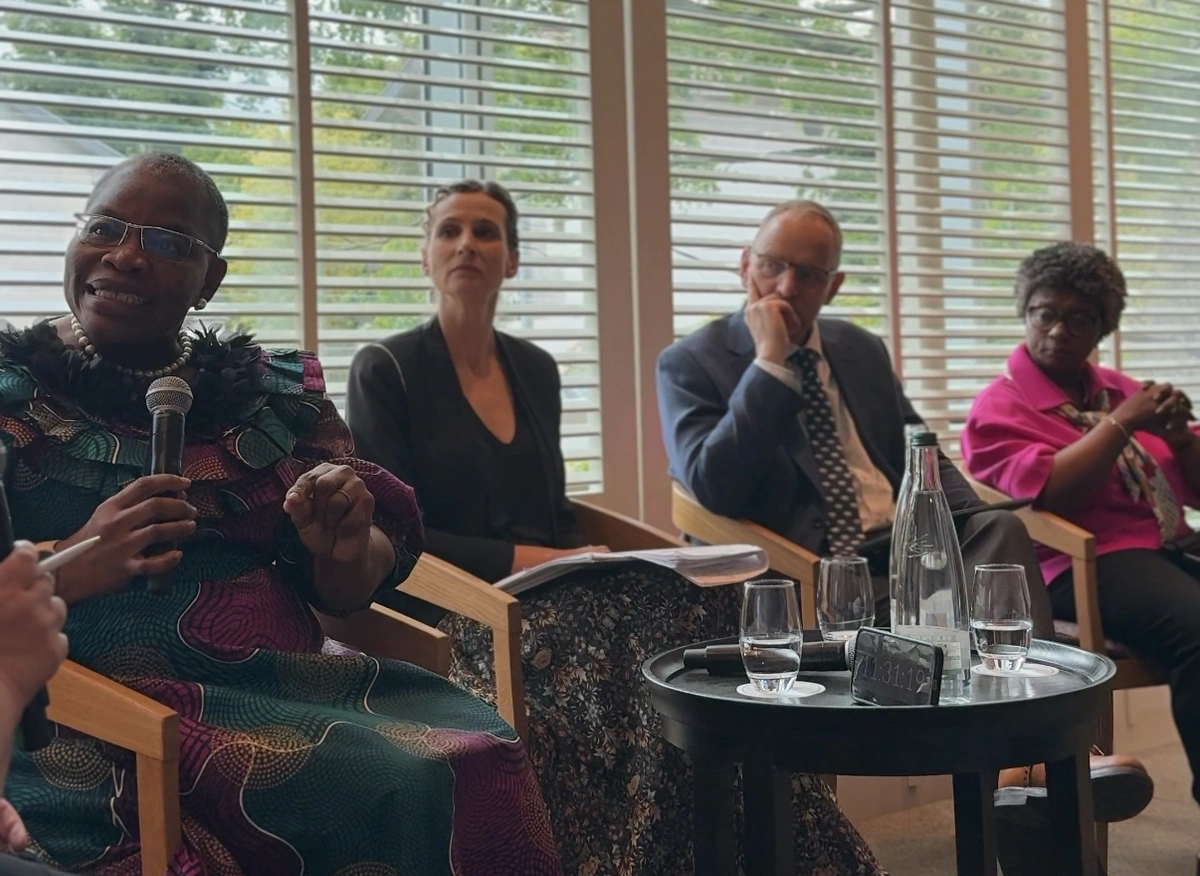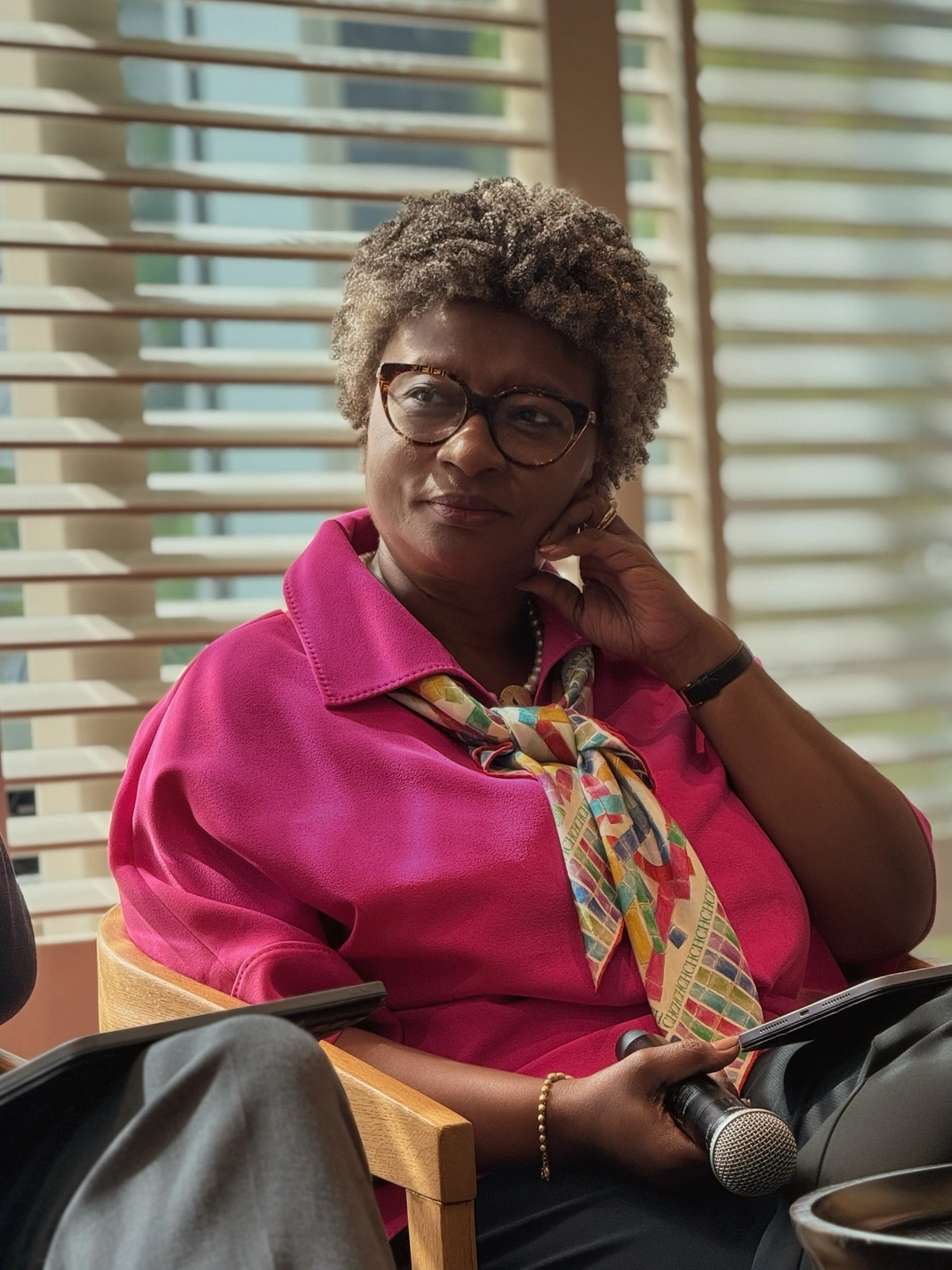
On Thursday, 22 May 2025, Acasus hosted a panel at the 78th World Health Assembly: 'Opportunity in Adversity: Delivering Change Against the Odds'. Some of global health's most prominent leaders were in attendance.
Off the main stage at the World Health Assembly in Geneva, a small side event carried a big idea: What if crisis isn’t a setback – but the spark we’ve been waiting for?
Could adversity – fiscal, structural, political – be turned into momentum for building better, braver health systems?
By the end of the hour, no one in the room was asking if. We were already deep into how.
This wasn’t another panel about new tools or funding pledges. It was about mindset – about who owns change, who leads it, and what becomes possible when inherited systems are no longer taken for granted.
From Scarcity to Scale
“The periods of greatest innovation in human history are those of adversity,” said Fenton Whelan, Founder and Chair of Acasus. “Innovation doesn’t come after a good night’s sleep – it comes from urgency.”
John Fairhurst, Head of Innovation at the Global Fund, agreed. “In times of financial pressure, we can’t slow down – we have to accelerate. The only way to manage limited resources is by doing things better.”
Neither romanticised hardship. Their insight was sharper: when old rules collapse, excuses do too. In disruption lies a rare chance to build what’s truly needed.
Our panellists weren’t calling for more pilots or shiny tech. What they demanded was scale – urgent, unapologetic scaling of what already works on the ground.
But scale without ownership, panellists warned, doesn’t stick. Real progress requires reform that is locally led and anchored on the ground.
Letting Go to Lead
Dr. Obiageli Ezekwesili, former Vice President of the World Bank, put it plainly:
“Countries that simply said to my team, ‘No, we want to do it ourselves,’ did better. Those that said, ‘Just give it to us,’ did worse.”
Her message cut through decades of development orthodoxy: power doesn’t trickle down – it has to be taken up. Reform led by citizens, not consultants, is the only kind that lasts.
“What we call adversity is, in fact, opportunity all around,” Ezekwesili continued. “It’s about creating momentum for citizens to own the development agenda of their countries.
The System Is the Innovation
Vanina Laurent-Ledru, Director of Fondation S. argued that health systems aren’t a niche policy concern – they’re the foundation of national productivity and connect us all.
“We need to move from vertical, issue-specific interventions to strengthening the health system as a whole. Otherwise, we keep missing the bigger picture.”
But system-building, our panelists reminded us, isn’t just about design. It’s about listening.
“Innovation won’t come from a Geneva conference room on a Thursday morning,” said Whelan. “It comes from the ground – from those already delivering, adapting, solving.”
The next wave of reform, they agreed, must begin not with new frameworks, but with deeper listening – to communities, to health workers, and to voices too often excluded from decision making.
The Frontline Isn’t Optional. It’s the Future.
One of the most insightful moments was listening to a speaker from the floor. “In Chad, adversity is constant,” said Oulesh Taha, Adviser from the Ministry of Health. “We no longer want to manage around it – we want to build through it.”
He brought the conversation to where budgets and intentions meet reality:
“Community health workers are not optional. They are a must. We must trust and sustain them as pillars of delivery and accountability.”
Dr. Magda Robalo, former health minister and a seasoned leader, agreed:
“Too often, CHWs are a survival strategy. Can we stop perpetuating that? Can we give people real access to quality care – not poor access to poor-quality?”
The call wasn’t just for funding – it was professionalising and recognising this critical cadre. 80% of community health workers are women. What kind of leadership continues to overlook them?
Dr. Magda Robalo, former Minister of Health of Guinea-Bisseau, speaking
at the 78th World Health Assembly in Geneva, Switzerland.
Leadership, Rewired
The most repeated word wasn’t “money.” It was “courage.”
“We need fearlessness,” said Robalo. “Incremental change will not get us there. The opportunity lies in challenging the system.”
She wasn’t advocating for chaos, but clarity. The kind of collaborative leadership that dares to listen differently and redistributes power meaningfully.
“The era of the singular charismatic leader is over,” echoed Ezekwesili. “We need collective leadership that defines problems in ways that make ownership possible.”
Coalition, Not Charity
One final pivot revealed a particularly key insight: adversity is not an excuse to protect what’s ours – it’s a reason to build what’s shared.
“At a time of crisis, institutions often look inward,” said Whelan. “But we need to look outward—for collaboration and collective intelligence.”
Chad’s Ministerial Adviser offered us a leadership blueprint: build while moving, trust and invest in the frontline, decentralise decisions, and treat iteration not as failure – but as policy.
“We must stop treating adversity as an obstacle,” Taha said. “Constraints push clarity. Scarcity demands innovation. Pressure reveals leadership.”
A Quiet Revolution, Out Loud
By the time we closed, something had shifted. This wasn’t a strategy to be emailed around or another theory to be debated. It was a blueprint for change forged in real time by bold thinkers already immersed in the work.
Four imperatives emerged:
-
Entrust national changemakers with real decision space.
-
Invest in the frontline – and listen and learn from them.
-
Fix systems, not symptoms. Prioritise integration.
-
Identify what works. Iterate. Scale. Repeat.
I closed with a reflection I offer again here:
“Maybe it’s not the ‘what’ that’s broken – but the ‘how’. And maybe, by bringing together the hive mind in the room, we’re already in a different place.”
If you were in the room, you felt it. If you weren’t, I hope this gives you a taste.
Because Brave Change isn’t a slogan. It’s a collaborative call to action.
And it starts now.
To delve deeper into our new CEO’s thoughts on how global health can do more with less, read Jonny Barty’s op-ed for Thomson Reuters’ Context platform.



